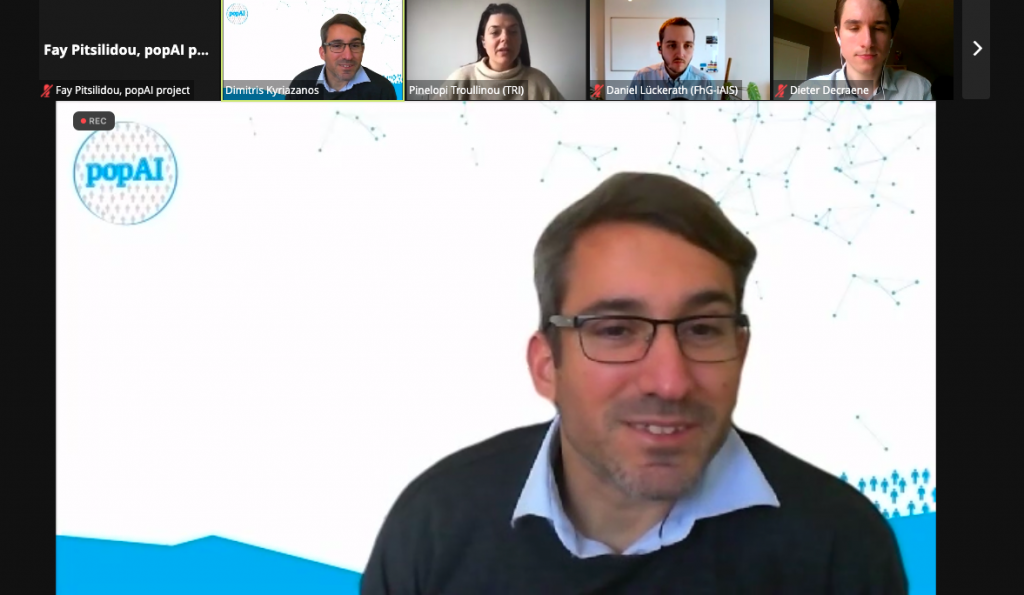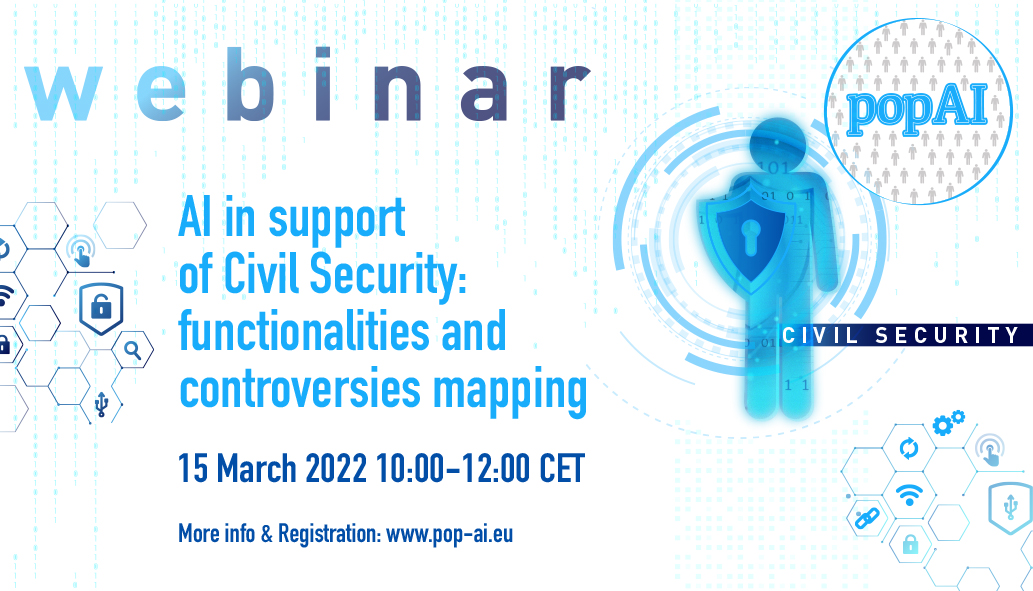We are delighted to announce the organisation of the first popAI project webinar!
This first virtual workshop of the popAI project AI in support of Civil Security: functionalities and controversies mapping took place on Tuesday 15 March, and outlined the preliminary findings of the project on the mapping of AI functionalities in the Civil Security domain, including identified connected controversies.
One of the key objectives of the popAI workshop was to ensure that the diversity of experiences of citizens and LEAs within Europe and the civil security domain are addressed.
During the event we had the pleasure to welcome sibling projects ALIGNER and STARLIGHT who also participated in the workshop with relevant talks.
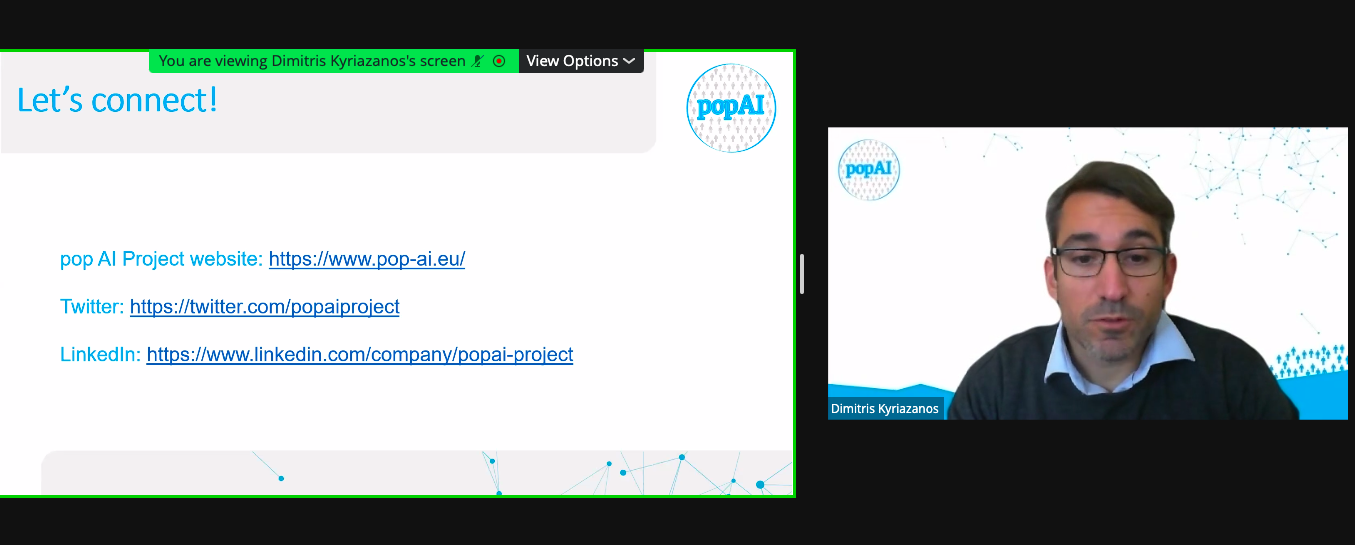
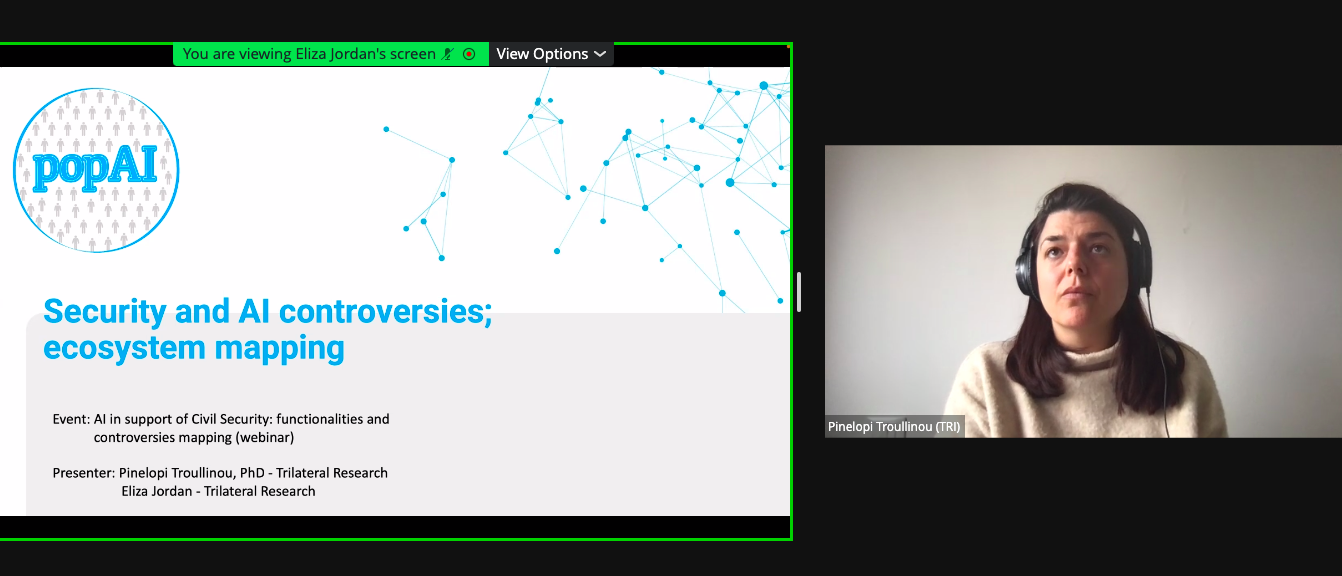
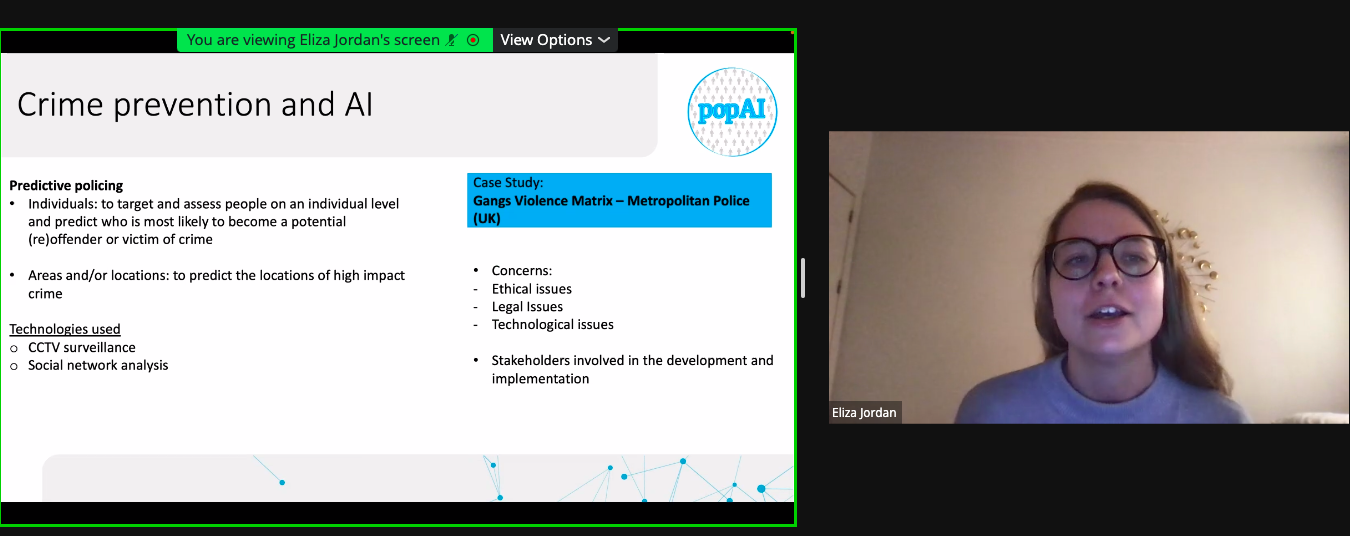
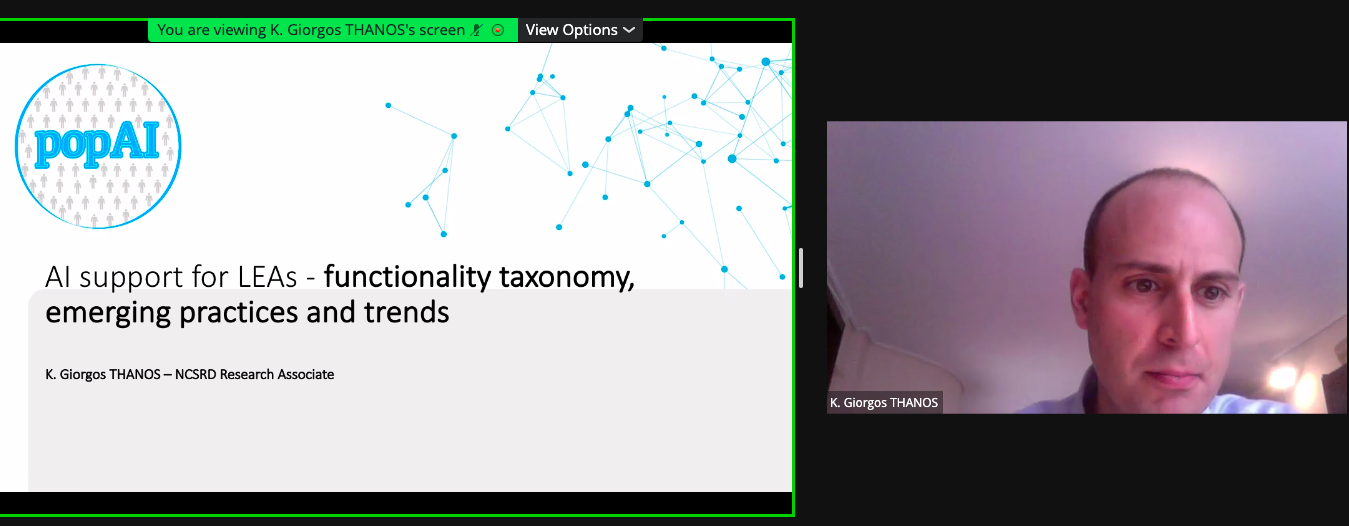
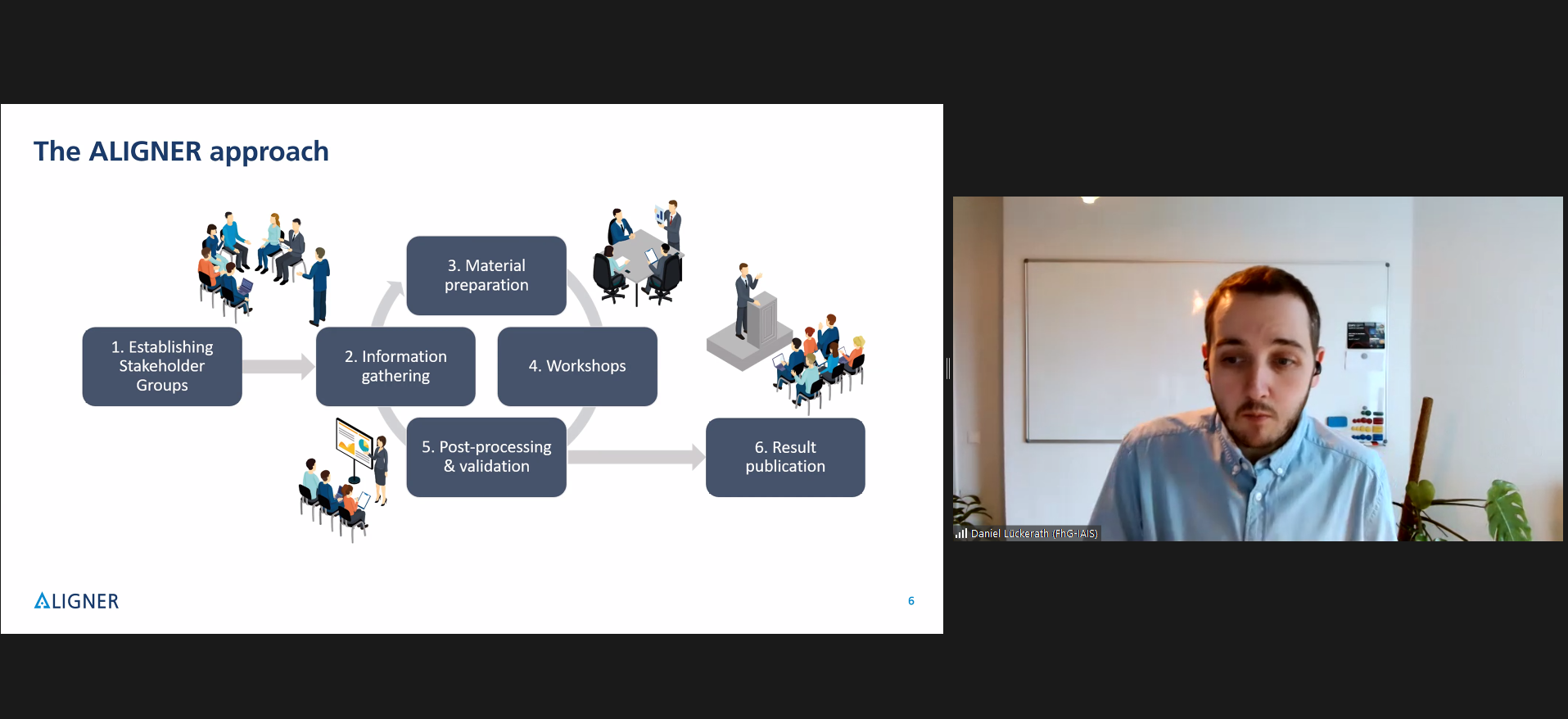
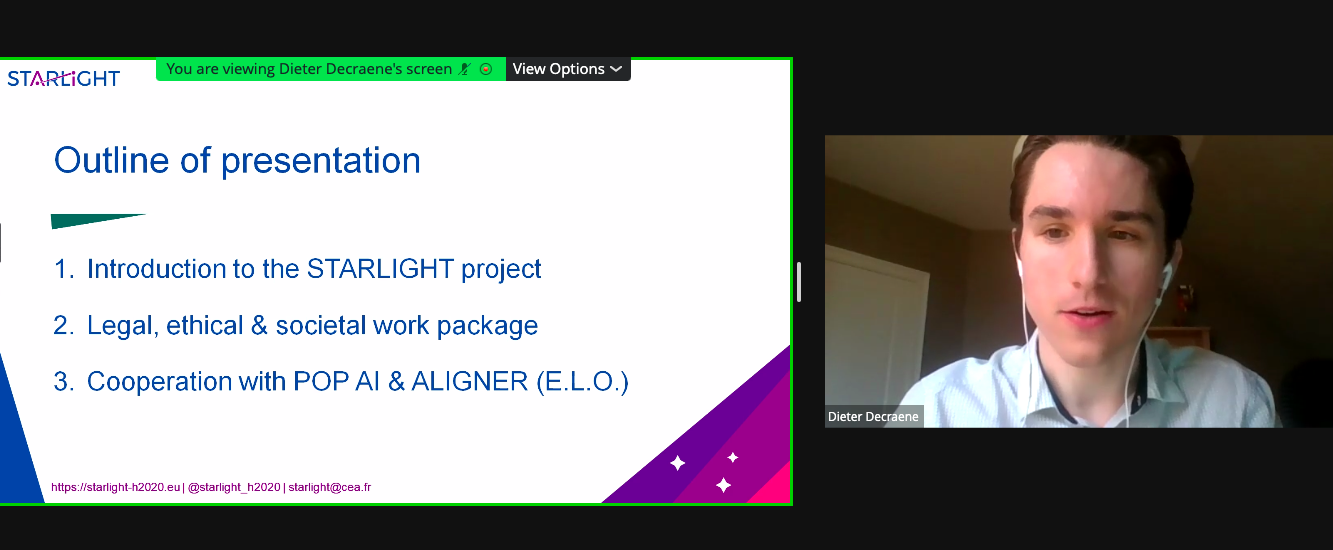
AGENDA
| 10:00-10:10 | Welcome - short project introduction | Dimitris Kyriazanos, popAI project coordinator, NCSR Demokritos |
| 10:10-10:25 | AI controversies in the security domain - ecosystems mapping | Pinelopi Troullinou, Trilateral Research |
| 10:25-10:40 | Discussion and Q&A | |
| 10.40-10:55 | AI support for LEAs - functionality taxonomy, emerging practices and trends | George Thanos, NCSR Demokritos |
| 10:55-11:10 | Discussion and Q&A | |
| 11:10-11:30 | AI scenario views by ALIGNER and STARLIGHT | EU SU-AI cluster - sibling projects | Daniel Lückerath (Fraunhofer IAIS) & Lindsay Clutterbuck (CBRNE Ltd), ALIGNER / Dieter Decraene (KULeuven), STARLIGHT |
| 11:30-12:00 | Open Discussion | |
A few words about the popAI project
popAI is a 24 month Coordination and Support Action (CSA) bringing together security practitioners, AI scientists, ethics and privacy researchers, civil society organisations as well as social Sciences and humanities experts with the purpose of consolidating knowledge, exchanging experience and raising awareness in the EU area, under a well-planned work methodology. The core vision of popAI is to foster trust in Artificial Intelligence for the security domain via increased awareness, ongoing social engagement, consolidating distinct spheres of knowledge (including theoretical & empirical knowledge by academics & non-academics) and offering a unified European view across LEAs, and specialised knowledge outputs (recommendations, roadmaps, etc), while creating an ecosystem that will form the structural basis for a sustainable and inclusive European AI hub for Law Enforcement.
